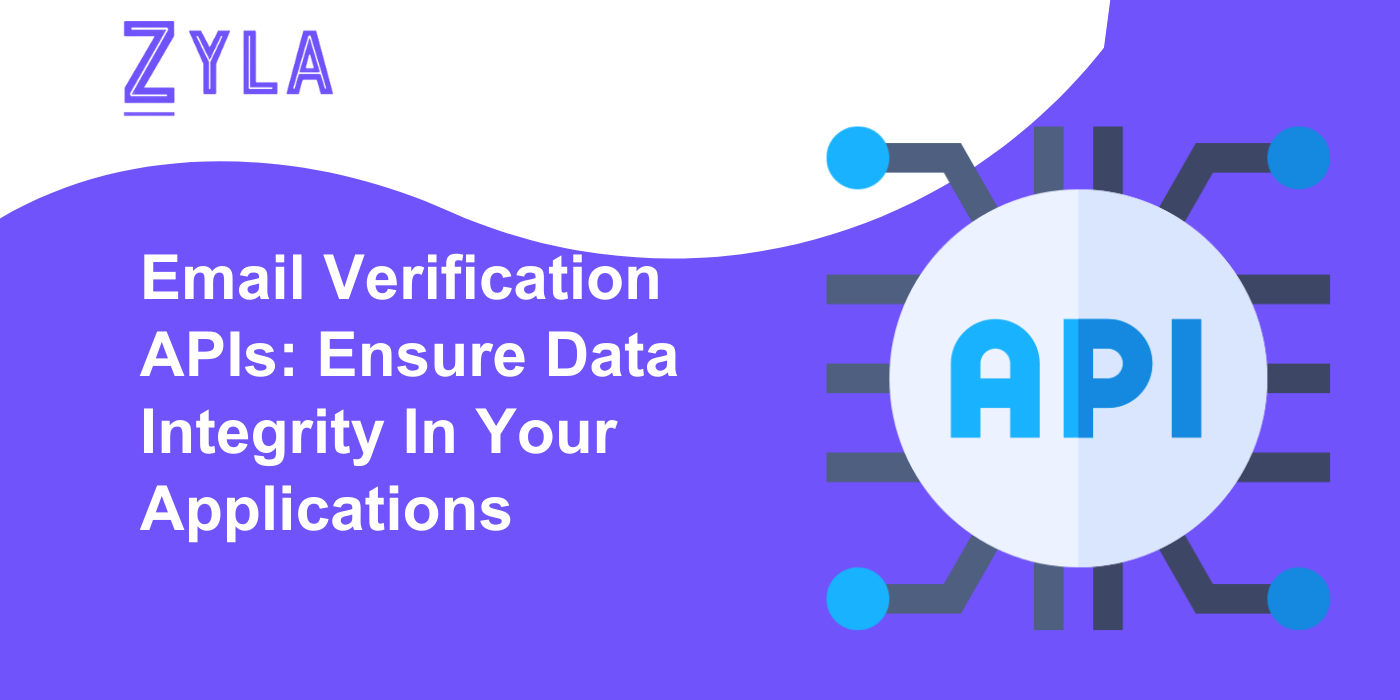Email Verification APIs: Ensure Data Integrity In Your Applications

Email Verification APIs are powerful tools that can help businesses maintain data integrity by ensuring the accuracy and validity of email addresses collected through various channels. In this article, we will delve into how Email Verification APIs can enhance data integrity in applications and the benefits they offer in improving communication strategies.
Understanding Email Verification APIs
Email Verification APIs are software interfaces that enable developers to validate email addresses in real-time by checking their syntax, domain validity, and existence. By integrating an Email Verification API into their applications, businesses can verify the authenticity of email addresses and prevent inaccurate or invalid data from entering their systems. This plays a crucial role in maintaining data integrity and improving the overall quality of contact databases.
Importance of Data Integrity
Data integrity refers to the accuracy, consistency, and reliability of data stored in a database or system. Ensuring data integrity is essential for businesses as it impacts decision-making, operational efficiency, and customer relationships. By maintaining data integrity, businesses can trust the information they rely on and make informed decisions based on accurate data.
How Email Verification APIs Enhance Data Integrity
1. Data Accuracy
Email Verification APIs help businesses maintain data accuracy by validating email addresses at the point of entry. By verifying the authenticity of email addresses in real-time, businesses can prevent typos, inaccuracies, and fraudulent email addresses from being stored in their databases. This ensures that the contact information collected is correct and up-to-date, improving the overall quality of the data.
2. Reduced Bounce Rates
Invalid or non-existent email addresses can lead to high bounce rates, impacting email deliverability and sender reputation. Email Verification APIs help businesses reduce bounce rates by identifying and removing invalid email addresses from their lists. This ensures that emails reach the intended recipients and improves the effectiveness of communication strategies.
3. Enhanced User Experience
Integrating an Email Verification API into applications can enhance the user experience by prompting users to correct errors in their email addresses before submission. This proactive approach not only improves data accuracy but also streamlines the registration process for users, leading to a smoother and more efficient user experience.
4. Compliance and Security
Data protection regulations such as GDPR require businesses to handle personal data responsibly and securely. By using Email Verification APIs to validate email addresses and obtain explicit consent for communication, businesses can ensure compliance with regulations and protect the privacy of their users. This enhances data security and builds trust with customers.
Benefits of Using Email Verification APIs for Data Integrity
1. Improved Decision-Making
Accurate and reliable data is essential for making informed business decisions. By ensuring data integrity through Email Verification APIs, businesses can trust the information they use for analysis, forecasting, and strategic planning, leading to better decision-making outcomes.
2. Enhanced Customer Relationships
Maintaining data integrity helps businesses build stronger customer relationships by ensuring that communication is targeted, relevant, and personalized. Valid email addresses enable businesses to reach customers effectively and deliver tailored messages that resonate with their audience.
3. Operational Efficiency
Data integrity streamlines business operations by reducing errors, redundancies, and inconsistencies in the database. By using Email Verification APIs to validate email addresses, businesses can optimize their processes, improve workflow efficiency, and minimize data management challenges.
Implementing Email Verification APIs for Data Integrity
Integrating Email Verification APIs into applications is a straightforward process that involves the following steps:
1. Select a Reliable API Provider
Research and choose a reputable Email Verification API provider that offers high accuracy rates, real-time validation, and easy integration options.
2. Obtain API Key
Sign up for an account with the selected API provider and obtain an API key, which is a unique identifier that allows access to the verification services.
3. Integrate the API
Integrate the Email Verification API into applications by making API calls with the provided API key. Most API providers offer comprehensive documentation and support to guide developers through the integration process.
4. Validate Email Addresses
Implement email validation logic in applications to validate email addresses entered by users. Call the Email Verification API to check the validity of email addresses and receive responses indicating their authenticity.
5. Handle Verification Results
Based on the verification responses from the API, handle the results accordingly in applications. Display error messages for invalid email addresses, prompt users to correct their input, and ensure that only valid email addresses are stored in the database.
Conclusion
Email Verification APIs are valuable tools for businesses seeking to ensure data integrity in their applications. By leveraging the capabilities of Email Verification APIs, businesses can maintain data accuracy, reduce bounce rates, enhance user experience, and comply with regulations. Integrating Email Verification APIs into applications can help businesses optimize their communication strategies, improve decision-making, and build stronger customer relationships. Embrace the power of Email Verification APIs to enhance data integrity and unlock the full potential of your applications.






